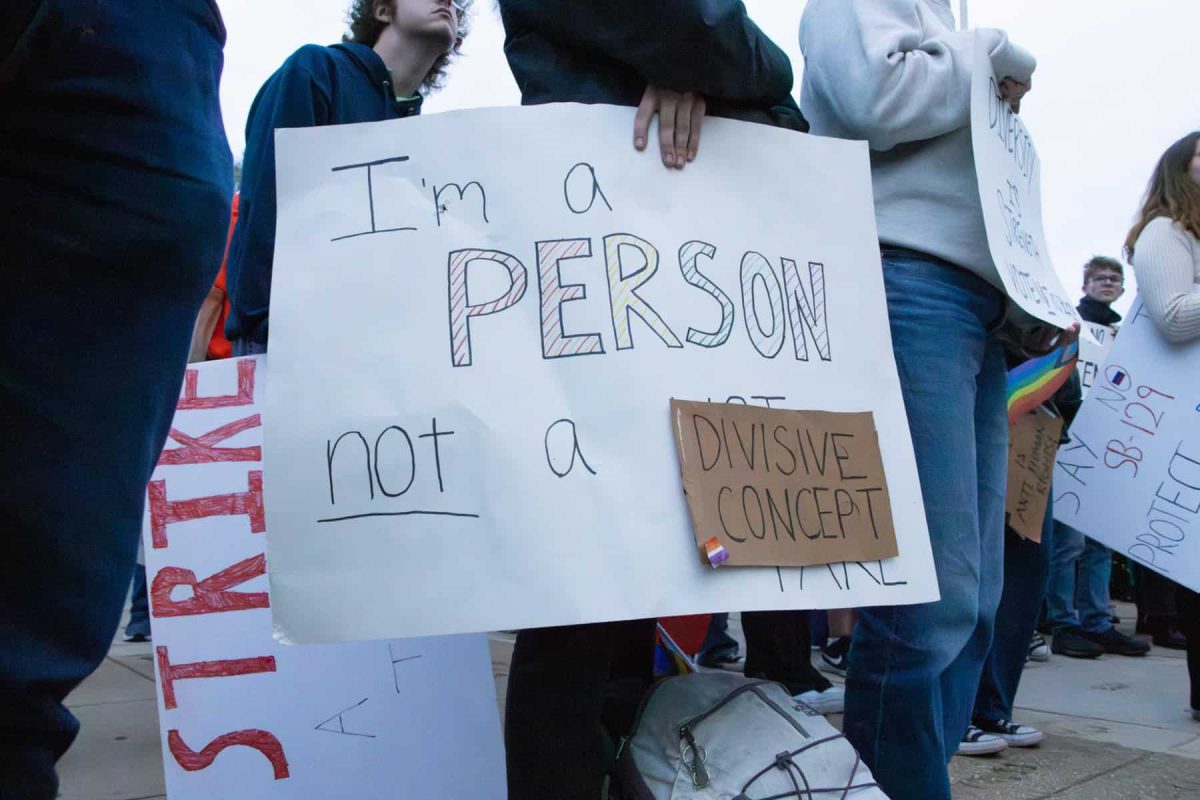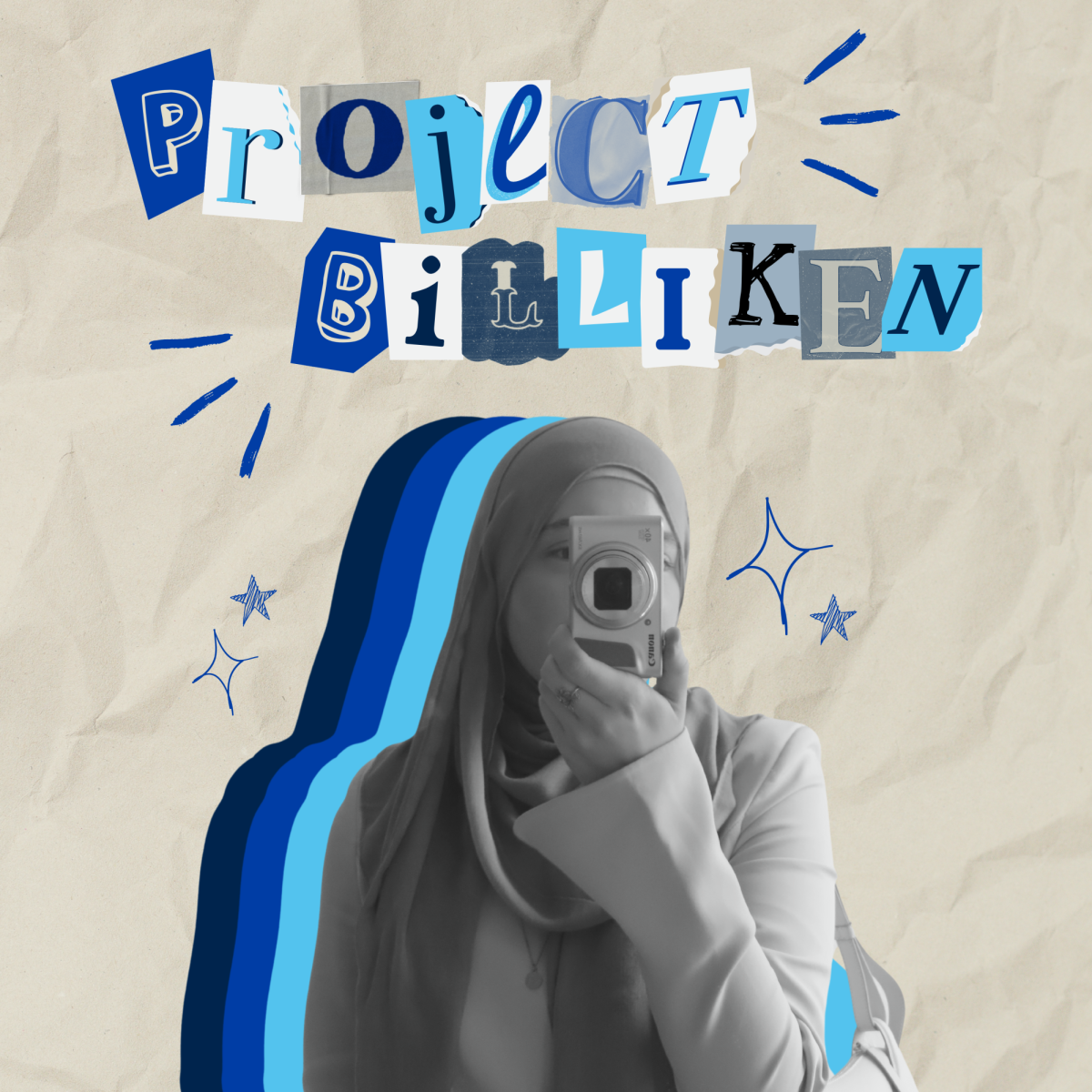Loneliness is a feeling that many people experience and not enough talk about. A survey of Saint Louis University students was done to see how students felt in terms of loneliness. I approached eight random and different people I came across on campus, and asked them the ultimate question: On a scale of one to ten, with one feeling no loneliness and ten feeling absolute loneliness, where would you currently rank yourself?
Interestingly enough, all eight of these people ranked themselves five or lower, with a majority of twos and threes on the scale. I got a variety of different answers on how people were feeling and why.
David, a first year electrical engineering major, rated himself as a two on the scale. He has not struggled much with feelings of loneliness throughout his life and finds it easy to enjoy his own company, especially when busy with school.
“A lot of my time is spent doing work or school work, so I don’t have time for people and the few people that I have they fulfill,” David said.
Lydia Mulugeta, a sophomore neuroscience major, also rates herself as a two on the scale. She talks about how she has felt more connected when interacting with those of a similar background as she.
“I’m Ethiopian, so I’m used to being around a lot of Ethiopian people at home. There weren’t as many when I came to SLU, but now we have an Ethiopian-Eritrean student association. Makes me feel more at home in St. Louis,” Mulugeta said.
However, she has also expressed some feelings of loneliness when it comes to her being a minority at SLU and inclusivity.
“I think it’s always going to inherently harder for people like me to integrate themselves into communities because you are not the majority,” Mulugeta said.
Grace Moore, a sophomore who rates herself as a four on the scale, also talks about the lack of diversity that can sometimes be felt at SLU.
“Being a black student… I’m most comfortable around other black students, but there’s so few of us here,” Moore says.
When asked what SLU can do more to help students combat feelings of isolation,“More than one mental health day a semester would be nice… being more conscious of minority students on campus, doing more for Palestinian students for example or black students,” Moore said.
Lydia provides a crucial detail that can often play a role in how represented certain groups can feel in a university setting.
“I do think they could do better about advertising events.. Like we have BSA [Black Student Alliance] events all the time, but they’re not well advertised,” Mulugeta states.
Samiha Khan, a junior bioethics major, rates herself as a five on the scale. She describes the feelings of loneliness as feelings that arise when things are not aligned.
“Two things are not fitting properly in place, so it would be like a friend asking me to go get lunch or something and I’m just not free.. so I feel this incongruence,” she says.
When asked what factors contributed to her choosing a five on the scale, she talks about how she and some fellow students have noticed that semester schedules or class load can have an effect on having connections with people
“I think this semester in particular, my schedule doesn’t align well with a lot of my friends, so I just don’t really get to see them all that often,” Khan said.
She discusses how sometimes the best way to combat feelings of loneliness is by putting yourself out there.
“A lot of it is just forcing yourself to be uncomfortable and to do things that are going to put you in the presence of other people,” Khan said.
Khan also gives a good piece of advice that’s a bit more tailored when joining clubs.
“Not just being a member of a club, but doing something proactive in a club really makes a difference because then you’re actively working together with people,” Khan said.
When asked what SLU could do to help students combat loneliness, Lydia talks about how there should be more initiatives to help incoming freshmen with choosing which clubs or organizations they want to join to help with feeling a sense of belonging.
“Especially for a freshmen coming in, the amount of information that you receive that is available at this school is pretty overwhelming and to be able to pick out communities that you want to integrate yourself in can be hard… maybe, for freshmen, have targeted programming at getting them involved in these organizations, because it can be really scary to take the initiative yourself especially if you don’t have friends here,” Mulugeta said.
Samiha also talks about how although she currently lives in an off campus apartment nearby and doesn’t identify with being much of a commuter, she notices the differences between people who live on campus and those who don’t.
“I’m not that much of a commuter because I do live really close off campus…but I definitely have felt that energy especially from other commuters that I’ve talked to, like people who are commuters proper that live 25-30 minutes away. A lot of the time campus events are dispersed by word of mouth… since commuters aren’t always on campus they can’t just see something going on in passing and go take a look like other people,” Mulugeta said.
Abby Van Vooren, a transfer student from DePaul University, has only been at SLU for about four weeks. She rates herself a three on the loneliness scale, and although she hasn’t had much time to make a lot of new friends, she acknowledges SLU’s midwestern hospitality.
“…People are a lot nicer here too and it’s that midwest hospitality and it’s not as rushed of a city,” Van Vooren said.
Some students though aren’t as used to the Midwest’s hospitality, but yet still find some benefits to it in terms of making new friends.
“I did not expect the people at SLU to be as open as they are. I don’t know if it’s a west coast/midwest thing… but when you meet them they divulge most of their life’s details. It’s a little bit shocking to be honest,” Mulugeta said.
However, Mulugeta still acknowledges that this can be helpful in conversation starters sometimes.
“It’s helpful for me because I’m not like that, for them to get the conversation started and I can follow suit,” Mulugeta said.
However, some students have also acknowledged the importance of choosing your friends wisely and prioritizing yourself. When asked about advice for other students, Grace talks about how sometimes less is more when it comes to friendships.
“Don’t sacrifice your own values or your own mental heal to be one of those people who has a super big friend group because those aren’t always the healthiest anyways, and I think it’s better to have one or two people you can really trust who will be there for you guaranteed then to try to fit into a space where you’re unsure if you’re wanted or not,” Moore said.
Abby also talks about the art of learning to listen to oneself and cutting off the distractions in the world that don’t allow us to do that sometimes.
“Cutting back on Tiktok and Instagram really helps, because yeah obviously that stuff helps when you don’t want to think or take a load off, I definitely think it’s good in moderation, but when you’re always listening to that you’re not really listening to yourself,” Van Voreen said.
Sometimes some students find it difficult to enjoy their own company. Some like Lydia have mentioned how doing things alone and not waiting for others can really begin to cultivate a relationship with oneself.
“I would say if you want to do something do it alone because that’s what I really struggled with last year…I would see something that I would want to go to, especially first semester but I wouldn’t want to go by myself just because I wouldn’t know anyone else and either go by yourself or drag a roommate if you must,” Mulugeta said.
Others like David find it easy due to his own life experiences to easily have a good relationship with themselves and not feel the feelings of loneliness too frequently. He gives some advice on how other students can also begin to cultivate a similar mindset.
“Don’t be hard on yourself, tell yourself you deserve things and you’ll like yourself more,” David said.











Monique Roos • Apr 14, 2024 at 10:20 pm
As an international grad student, I never felt so alone as I felt in this place.
Emily • Apr 14, 2024 at 2:52 pm
I think this was a really meaningful and well put article. I would have really benefitted from this freshmen year, knowing that I am not the only one to experience this. You touched on a lot of big parts of being a student at SLU that I also relate to struggling with. The commuter experience is not openly discussed a lot, and especially being a freshmen commuter can feel even more isolating. And like the student interviewed I only live a few exits from SLU, but that alone still has a significant impact on my experience. I think it was important that you shed light on the fact a majority of events are word of mouth, and or last minute, making it difficult for commuters. I also agree with the topics of underrepresenting minority groups at SLU, the school speaks about our inclusivity but with little to no ACTUAL advertisement of groups or events to attended. I personally struggle with finding queer spaces at SLU that are ONLY queer spaces and not just the occasional events that are not guaranteed to have other queer people at, or the spaces that are specified for queer only are the support groups in youth ministry and faculty wonder why no one is attending. I wish there was a more regular and casual queer spaces for students, rather than the random rainbow alliance brief open office hours that you must be paying attention to their instagram stories to know about. I think if there was more scheduled and better advertisements a lot more people in the community would begin to attend. Especially being in the midwest university may be the first and or only place in a student’s life they could have a more effortless exposure and opportunity to be in queer spaces and meet queer friends. Agreeing with the interviews that SLU is made up of majority of cis white students, and regardless of whether or not these students are inclusive, minority students feel most comfortable with their communities, as anyone would, and college is the most critical time to be in space you feel comfortable and safe in. Minority students spend most of their everyday life in and outside of college surrounded by majority. So having spaces for minority students matters, and is detrimental. I’m glad the article shared on the importance of enjoying your own company and taking care of yourself. I think that is a very difficult part of the SLU culture, that is hopefully beginning to shift. SLU’s community is very big on the big friend group experience and it does feel incredibly isolating when you are not apart of one. Or when you are in one it can be difficult to find comfort in your own independence and branching out on your own. I thought it was very valuable that you highlighted the workload and schedule conflicts impacting friendships and your social life. Having limited time to schedule hangouts with friends has been a big part of my struggles of feeling isolated or getting burnt out, especially being in STEM. I don’t think think the SLU faculty understand that between attending classes, doing homework, trying to go to events, trying to fit in physical activity, making sure to get food (let alone healthy food), take care of yourself, get plenty of sleep…. feels like a constant battle everyday. There are only so many hours in the day, and then trying to find time to have genuine off time with friends that isn’t a study hangout is sooo hard. And even then, study hangouts require a lot of discipline from everyone to make sure you actually get any work done. It feels like sometimes you need to sacrifice your homework and grades for even a few causal hours of your social life. I hope we keep this conversation going as students and continue to open up about these experiences I think almost all of us relate to in some way.